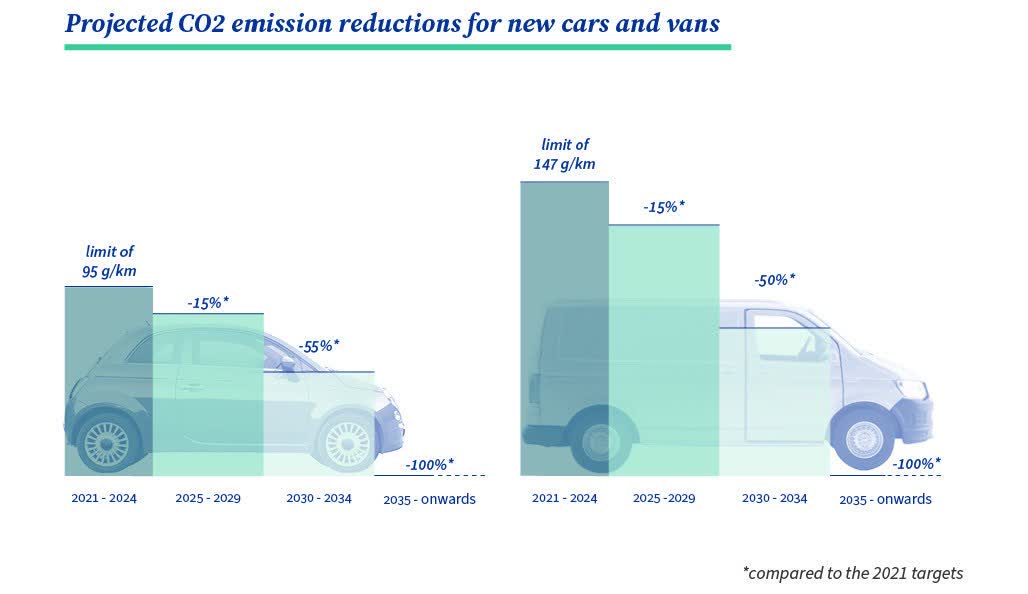In brief: As the climate crisis grows ever more urgent, several governments worldwide have recently pledged to stop the sale of new gas-powered vehicles in the 2030s to lower CO2 emissions. The European Union is the latest body to introduce such plans.
This week, the European Council and the EU Parliament agreed on a proposal to ban the introduction of new internal combustion engine cars and vans starting in 2035. The two groups expected to adopt the new rules soon.
The proposal's first step will be to reduce CO2 emissions from new cars by 55 percent compared to 2021 levels and new vans by 50 percent before 2030. The EU hopes to accomplish the task by tightening emissions regulations to convince manufacturers to make more low-emission and zero-emission vehicles.
Manufacturers can earn loosened targets if enough of their new vehicles are low-or-zero-emission. The rules increase that minimum goal to 25 percent of cars and 17 percent of vans until 2030. Automakers will receive fewer emissions credits for introducing CO2-reducing innovations.

The EU hopes the proposal will spur further development of cheaper electronic vehicles, more carbon-neutral fuels, and other zero-emissions innovations. Exceeding emissions limits will incur a penalty of €95 per gram of CO2 per kilometer over the limit for a given year. Small-volume manufacturers that sell at most a few thousand vehicles a year, like Ferrari or Aston Martin, are exempt from the new rules until the end of 2035.
In the US, three states --- Massachusetts, New York, and California --- want to stop putting new gas-powered vehicles on the road by 2035. Other countries, including Japan, China, the UK, and Germany, are looking to enact similar measures. Norway and South Korea have higher goals that set the ban deadline to 2025.
According to the UN, such drastic steps may be necessary to avert the worst consequences of climate change. A recently-released UN environment report says there is no longer a viable path to limiting global temperature increases to 1.5C above pre-industrial temperatures.
Current policies put us on course for a 2.8C increase by 2100, while the latest pledges from governments and other organizations will only cut that back to 2.4C or 2.6C. Cutting emissions by 2030 will require transformations across the entire global economic system.
